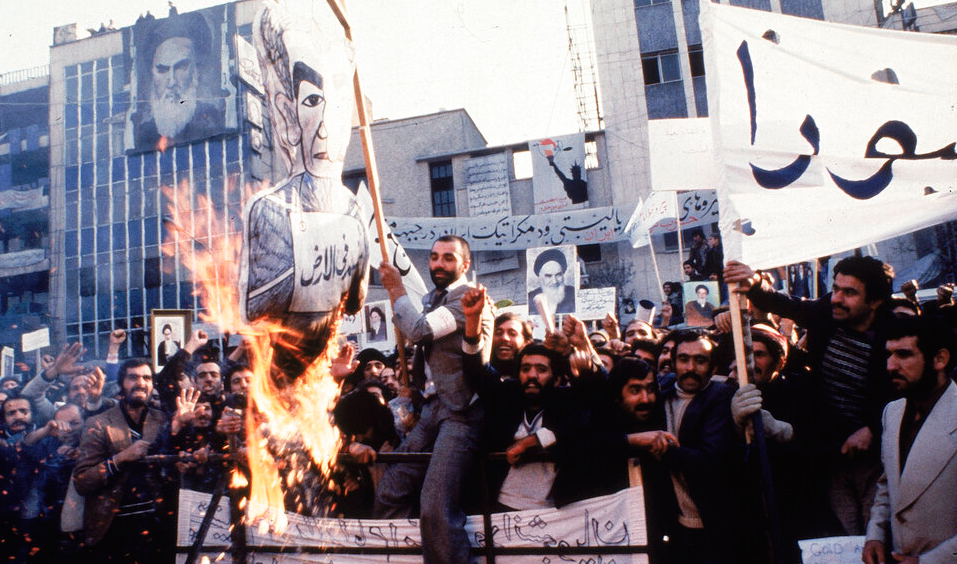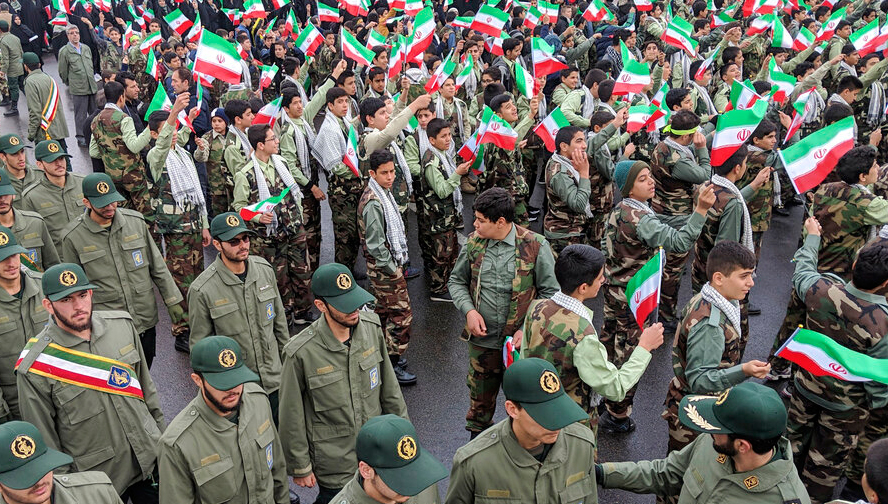Waving Iranian flags, chanting 'Death to America' and burning US and Israeli flags, hundreds of thousands of people poured out onto the streets across Iran on Monday, marking the date that's considered victory day in the country's 1979 Islamic Revolution.
On Feb. 11 that year, Iran's military stood down after days of street battles, allowing the revolutionaries to sweep across the country while the government of US-backed Shah Mohammad Reza Pahlavi resigned and the Islamic Republic was born.
In Tehran, despite the rain, crowds streamed in from the capital's far-flung neighbourhoods to mass in the central Azadi, or Freedom, Square, waving Iranian flags and chanting 'Death to America' — standard fare at rallies across Iran.
Chants of 'Death to Israel' and 'Death to Britain' followed, and demonstrators burned US and Israeli flags. Iranian state TV, which said millions participated in the celebrations, ran archive footage of the days of the uprising and played revolutionary songs. It later broadcast footage showing crowds across the country of 80 million.
The 6-mile-long downtown Enghelab, or Revolution, Street was decorated with huge balloons as loudspeakers blared out revolutionary and nationalist songs.
Every year, the anniversary festivities start on Feb. 1 — the day Ayatollah Ruhollah Khomeini returned from France after 14 years in exile to become the supreme leader as Shiite clerics took power. The celebrations continue for 10 days, climaxing on Feb. 11.
This year's anniversary comes as Iran grapples with the aftermath of President Donald Trump's decision last May to withdraw from the 2015 nuclear deal and restore tough US sanctions.
Speaking from a podium in central Tehran, President Hassan Rouhani addressed the crowds for nearly 45 minutes, lashing out at Iran's enemies — America and Israel — and claiming their efforts to 'bring down' the country through sanctions will not succeed.
'The presence of people in this celebration means that plots by the enemies ... have been defused,' Rouhani said. 'They will not achieve their ill-omened aims.'
In the backdrop to Monday's marches, the military displayed Iranian-made missiles, which authorities showcase every year during anniversary celebrations. The missiles have a range of up to 2,000 kms, placing Israel and US military bases within range.
Over the past decade, Iran has frequently test-fired and displayed missiles, sent several short-lived satellites into orbit and in 2013 launched a monkey into space.
The ballistic missile tests have angered the United States, which fears they are part of an effort to develop a nuclear weapons capability, something Iran insists it has never sought. The 2015 nuclear agreement urged Iran to cease such missile tests, but did not forbid them outright.
'We do not and we will not ask permission for producing any type of missiles from anybody,' Rouhani said in his speech Monday, though he stressed that Iran would 'continue constructive engagement' with the international community.
Rouhani also promised that Iran would overcome its economic hardships, worsened by the restored US sanctions.

In an undated photo from 1979, protestors burn an effigy of Shah Mohammad Reza Pahlavi during a demonstration in front of the US Embassy in Tehran, Iran. AP file picture
Gen. Qassem Soleimani, the head of Iran's elite Quds Force, attended a rally in the southern city of Kerman. He is widely seen as the mastermind of Iran's extensive military activities across the region, which have also angered Washington. Iran supports the Lebanese Hezbollah and other militias in the region, and is closely allied with Syria's government.
In Tehran, 27-year-old medical student Hossein Hosseinpour walked with his wife and their 18-month-old son. He said he wanted to teach his son to support the revolution. 'I see a bright future for him and our nation,' Hosseinpour said.
Mahmoud Hemmati, 35, was pushing his 68-year-old mother, Parivash Fakheri, in a wheelchair. 'My mother, despite her illness, asked me to bring her out,' he said.
Fakheri, who was one of the revolutionaries on the streets of Tehran in 1979, said she would defend the revolution all over again.
'I know there are many economic problems today, but that is something different from our revolution,' she said. 'It has been moving forward over the past 40 years and making Iran stronger.'
Last week, Supreme Leader Ayatollah Ali Khamenei defended the 'Death to America' chants, saying they are aimed at America's leaders, such as Trump, and not its people.
The Iranian people 'will not stop saying 'Death to America' as long as the US acts maliciously' toward Iran, Khamenei said.
Iranian state TV anchor Mehdi Khosravi said he expects John Bolton, the US national security adviser, to be very angry on Monday since he had once predicted that Iranians will not see the 40th anniversary of their revolution.
Last year, Bolton told a meeting of Iranian exiles that 'before 2019, we here ... will celebrate in Iran.'











